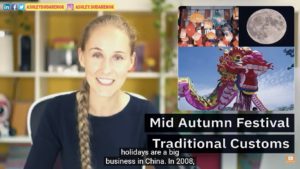
Marketing expert Ashley Dudarenok identifies three different groups of modern Chinese tourists and gives tips in Dao Insight on how businesses can attract them, especially now they tend to spend their money domestically, not internationally. She says now is the best time to set up 2023 and 2024 strategies.
Ashley Dudarenok on the international jet setter:
With the recent reopening of China’s outbound tourism industry, an increasing number of Chinese citizens are venturing overseas once again. The recent Dragon Boat Festival holiday in China demonstrated a significant revival in outbound travel, with border crossings reaching 65% of its 2019 level, according to the National Immigration Administration. Although the festival is a brief national holiday, the surge in cross-border travel highlights the growing demand for international travel among Chinese tourists.
Ctrip (another Chinese travel agency) reported that the average cost for outbound travel decreased during the holiday, with one-way air tickets being 6% lower than during the May Day holiday and bookings surging up to 12 times the levels that were seen a year ago.
Ctrip revealed that the most popular destinations during the Dragon Boat Festival included Hong Kong, Bangkok, Macau, Tokyo and Singapore, with travellers spending an average of $415 per hotel booking. This resurgence in outbound travel showcases the potential for businesses in the travel and tourism industry to capitalise on the pent-up demand for international experiences among Chinese tourists…
To succeed in capturing the attention of international jetsetters, businesses can harness the power of livestreaming as a marketing tool. By showcasing a range of attractions, local experiences, and cultural highlights in real-time, businesses can pique the interest of potential tourists and entice them to explore the featured destinations.
A prime example of harnessing the power of livestreaming is the 2023 collaboration between Trip.com, the Tourism Authority of Thailand, The United States Travel and Tourism Administration, and the California Travel and Tourism Commission. This partnership drew in over 1 billion views, showcasing the immense potential of livestreams as a marketing tool.
The collaboration also highlights the benefits of working closely with tourism authorities and commissions. By pooling resources and expertise, businesses and tourism organisations can create engaging and informative content tailored to the International Jetsetter demographic.
By leveraging strategies like limited-time offers or livestream-exclusive discounts and packages, businesses can successfully incentivise viewers to book their travel experiences and cater to the ever-growing market of international jetsetters.
Two more groups in Dao Insights.
Ashley Dudarenok is a speaker at the China Speakers Bureau. Do you need her at your meeting or conference? Do get in touch or fill in our speakers’ request form.
Are you looking for more marketing experts at the China Speakers Bureau? Do check out this list.





















